

(The following announcement has previously appeared on other Web sites, including LA Progressive.)
Practically everyone has an opinion about Obama’s health care, but few understand it, according to the latest Associated Press poll. The future of the president’s Affordable Care Act lies in the hands of the Supreme Court, which is expected to make a decision on the Act’s constitutionality in June. Meanwhile 40 million people are without health insurance.
A free public conference – Health Care: Where Are We Now? — will address the health-care debate:
Saturday, May 12, from 9 a.m.-12:30 p.m.
at Pasadena City College, Harbeson Hall
1570 E. Colorado Blvd., Pasadena
A coalition of community based organizations in Southern California led by the League of Women Voters Pasadena and Health Care for All – San Gabriel Valley is sponsoring the conference.
Other organizations include Physicians for a National Health Program,
» Read more about: Health Care Debate: A Free Public Conference »
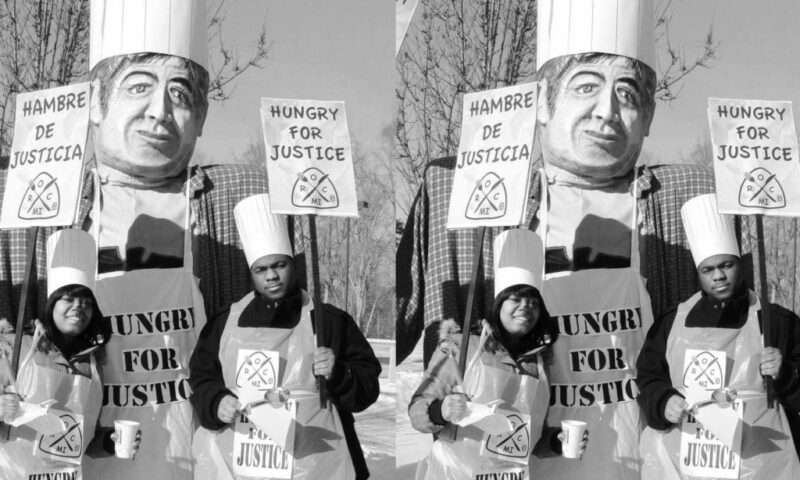
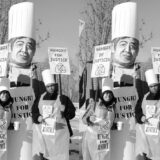
Republican legislators in Michigan have a new target, the Michigan Restaurant Opportunities Center (ROC). Apparently at the behest of industry lobbyists, GOP Representative Joe Haveman proposed limiting the funding of public universities that allow their students to get internship credits for working with ROC.
The cause is rather specific: a few interns participated in a picket line outside Andiamo, an Italian restaurant in Dearborn, near Detroit. Workers had sought to get paid overtime and get the owner to stop making them pay for their uniforms, among other demands. The company’s response (alleged surveillance and intimidation) led to several NLRB charges and a AFL-CIO sponsored boycott. The good news is, the dispute was settled back in May, 2011. The protests in question occurred back in 2009 and 2010.
As this blog post shows, restaurant industry folks weren’t too pleased, and thus the proposed new rule. The governor’s not in favor,

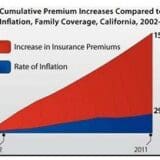
By Zack Kaldveer
Consumer Federation of California
As California families continue to reel from the most severe economic downturn since the Great Depression, health insurance premium rates have soared by 153 percent since 2002, nearly five times the rate of inflation.
Businesses are finding it difficult to pay for these rate hikes, and pass the increased costs on to workers. Business owners and employees are forced to absorb these rising costs or search for less expensive – and less comprehensive – coverage options.
This injustice isn’t so hard to comprehend considering only four insurance companies control 71 percent of the California market – setting premiums behind closed doors and without accountability.
While businesses and families struggle to pay unaffordable premiums that have double digit increases every year and workers face high unemployment and stagnant wages, Blue Shield lavished its CEO with a $4.6 million salary and then proposed premium rate hikes as high as 59 percent in 2011 (but later revoked the proposal due to a massive public outcry).
» Read more about: Ballot Proposal Would Regulate Health Insurance Rates »


(Note: This post first appeared April 28 on L.A. Progressive.)
According to US Secretary of Labor Hilda Solis, more people die in the American workplace in a single year than have been lost in nine years of war in Iraq. “Each day in America, twelve people go to work and never go home,” she told the audience at the Action Summit for Worker Safety and Health held at East Los Angeles Community College on April 26, one of many events leading up to Workers Memorial Day, April 28, an annual date of remembrance for those killed, injured, or sickened on the job.
María Elena Durazo, Executive-Secretary-Treasurer of the Los Angeles County Federation of Labor, AFL-CIO, reported there were 500 work-related deaths in 2011 in California and “Workers are still being fired for speaking out in order to avoid death.”
This loss of life and countless serious injuries,
» Read more about: Killer Jobs: Policing America's Dangerous Workplaces »
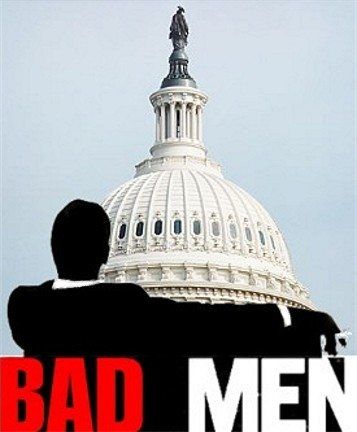
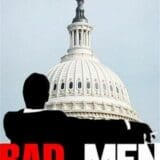
Three weeks ago March Madness in Washington gave way to April Apoplexy, a time when conservatives put aside the boring tasks of creating jobs, loosening credit and saving people’s homes in order to follow their true passion – kicking the ladder away from Americans who are trying to climb up to better lives. And what easier way to do this than to gut the work of the National Labor Relations Board (NLRB), an agency that has become a favorite chew toy of Congressional right-wingers?
Remember the doomsday predictions made by the U.S. Chamber of Commerce and others when the NLRB insisted that businesses put up the board’s tiny poster advising employees of their rights? That teapot tempest is now clogging up the federal courts, thanks to the chamber, but such mischief is nothing compared to what the chamber’s caddies in Congress have been up to.
» Read more about: Anti-NLRB Vote: A Dark Victory for Conservatives? »
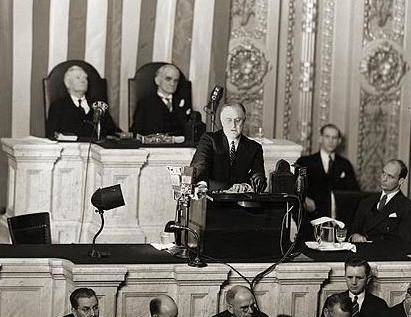
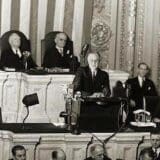
The Supreme Court’s deliberation on the Affordable Care Act goes to the heart of differing visions of the American concept of “freedom” and “liberty.” It’s a debate worth having.
In court this week, Solicitor General Donald B. Verrilli Jr. described what real freedom looks like. “There will be millions of people with chronic conditions like diabetes and heart disease,” he said, “and as a result of the health care that they will get, they will be unshackled from the disabilities that those diseases put on them and have the opportunity to enjoy the blessings of liberty.”
Verrilli’s argument evokes FDR’s famous “Four Freedoms Speech” that included freedom from “want” and “fear.”
FDR repeatedly articulated and elaborated upon those ideals. On June 8, 1934, in a special message to Congress he said:
“[I]n the earlier days, the interdependence of members of families upon each other and of the families within a small community upon each other” [provided fulfillment and security.] “The complexities of great communities and of organized industry make less real these simple means of security.
» Read more about: Affordable Care Act: Freedom from Ignorance »


To paraphrase Dostoyevsky on the subject of Gogol’s overcoat, All conservative pranksters have crawled out of Donald Segretti’s bag of dirty tricks.
Segretti, of course, was the Nixon operative who specialized in “ratfucking” – waging covert political warfare designed to embarrass Democrats running for office through forging inflammatory letters in their names and other deceits. Convicted as a Watergate conspirator, Segretti faded from history but his antics would be refined and expanded upon by Karl Rove and, later still, by James O’Keefe, who infamously showed up at ACORN offices impersonating a pimp in order to discredit the nonprofit group.
New York Times writer Michael Powell now presents an alarming overview of how contemporary ratfuckers have geared up to sabotage progressive organizations and political candidates. The piece revolves around John M. Howting, a young man who recently walked into the offices of a community action group,
» Read more about: WebHot: Political Dirty Tricksters Exposed »


It was quite a sucker punch Walmart landed against the community last week in the über-retailer’s fight to open a 33,000-square-foot store in L.A.’s Chinatown. The shot sneaked in, quick, low and hard–but ultimately didn’t end the match.
The scene last week: Los Angeles City Council chambers in City Hall, minutes before a unanimous March 23 vote on an emergency motion to temporarily ban chain stores (such as Walmart) from opening in the historic Chinatown neighborhood.
Suddenly, a startling announcement by a city bureaucrat—Walmart has obtained the permits needed to move forward in Chinatown—okayed only the day before the critical City Council vote.
The head of L.A.’s Department of Building and Safety himself, Robert R. “Bud” Ovrom, was there to deliver the news and further clarify the situation—namely, that the proposed ban would not interfere with the World’s Largest Retailer’s Chinatown plans.
» Read more about: Chinatown Fight's Still On: Groups Appeal Walmart Permits »


Assemblymember Allan Mansoor (R-Costa Mesa), elected in 2010, has so far made a career out of demonizing workers and attacking workers’ rights. From collective bargaining to pensions, Mansoor never saw a cherished worker right he didn’t hate. Last year, he even took time to honor anti-union Midwest legislators, whom he calls “courageous” and with whom he stands “in solidarity.”
It’s not surprising, then, that he’s become something of a shill for the campaign to silence workers’ political voice through this fall’s corporate power grab initiative. According to the Pacifica Institute, Mansoor vocally supports the measure, which proponents deceptively call the “Stop Special Interest Money Now Act,” arguing that it will limit “the influence of special interest money.” (Of course nothing could be further from the truth. It’s nothing other than a muzzle on workers that will make our system even more corrupt,
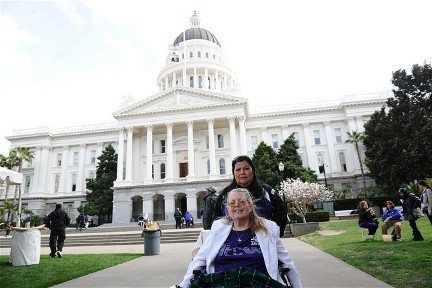
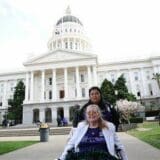
Over 400,000 elderly and disabled California residents depend on the In-Home Supportive Services (IHSS) program to keep them living safely and independently at home. Nearly half this number live in Los Angeles County. Over the last few weeks my colleagues have written articles that illustrate L.A. County caregivers’ need for a living wage and show the positive economic impact of that wage for all L.A. residents.
I am an in-home caregiver for my daughter Elizabeth, who suffers a mental disability. She is 21 years old, has autism and needs fulltime supervision. Any parent who has an autistic child understands the unique challenges we must deal with on a daily basis — such as my daughter needing to go to a special school, having to work with social workers who check in on her, juggling multiple doctors and administering her different medications throughout the day.
I am writing this article because I know my daughter deserves the very best care.
» Read more about: Home-Care Workers to Sacramento: Let’s Get Healthy! »


Community members recently wrapped up the three-pronged Long Beach Rising! civic-engagement program aimed at increasing residents’ participation in local politics. I’ve been part of the civic-engagement committee, which formed in November 2011 to address low voter turnout in local elections —particularly from people of color and low-income communities.
From the outset committee members knew we wanted to do something about the persistent disparities in voter participation (and the consequences this has for city policy), but didn’t have a blueprint for this sort of endeavor. So we set out to create one.
From the start there was a high level of enthusiasm, with members from nearly 20 community organizations convening last November to begin planning Long Beach Rising! This process was facilitated by the Long Beach Coalition for Good Jobs and a Healthy Community.
In January, 35 people graduated from our inaugural training program.


Last week, the AFL-CIO released a statement – “Restoring Democracy” – on the Supreme Court’s historic ruling in the Citizens United case.
The federation eloquently and accurately inveighs against “excessive corporate influence” in the political process, calling for “greater balance . . . transparency and disclosure . . . restoring Congress’ ability to regulate campaign spending,” and “abolishing corporate ‘personhood.’” If necessary, the AFL states, we should pass a Constitutional amendment to overturn Citizens United. To be sure, all of these things are true: Citizens United is bad for democracy in general, and especially bad for labor, as it makes the political playing field further unbalanced in favor of corporations and the wealthy.
In the spirit of full accounting, though, let’s acknowledge that the ruling does give labor something: For the first time in the modern history of a presidential race,
» Read more about: Cash of the Titans: Life After Citizens United Ruling »

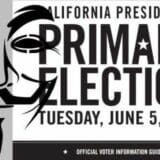
We’re thoroughly non-partisan here at Frying Pan News, but still we get many questions about voting. Most of them are about American Idol, but once in a while someone wants to know about elected officials. And while we still won’t tell you how to vote (though Professor Wagstaff’s dictum isn’t a bad place to start), we can happily answer some of your process questions.
Q: Hey, I heard a lot recently about voters “making mischief” in the presidential primary in Michigan. ’Sup with that?
A: It’s true—at least it’s true that you heard a lot about it, though there’s little evidence of any actual mischief-making. But some states do allow (just about) anyone to vote in (just about) any primary. In Michigan, the story goes, some Democrats – convinced that Romney would be the stronger opponent in the fall – crossed party lines to vote for Santorum in the primary,
» Read more about: Making Mischief in California Primaries »


Since when did one’s mode of transportation become about politics? Who ever thought that riding one’s bike to the grocery store, taking the bus to work or driving to run errands could be a sign of one’s political stripes?
In some cities, such as New York and San Francisco, riding the train defines the experience of everyone living there. Entire movies, books and blogs have documented the romance and day-to-day life of riding public transit and navigating busy sidewalks. Can you even imagine what a New York free of subways, buses and pedestrians would look like? Republican or Democrat, liberal or conservative, you’re on the train.
Just ask Mitt.
Mitt Romney is among a vocal set of Republicans who have decided that certain forms of transportation are more democratic than others; he subscribes to the belief that roads are a given right of Americans, but that public transit is not.
» Read more about: Highway Robbery: Mitt Romney’s War on Mass Transit »


Frying Pan News writer Donald Cohen appears on television tonight in a segment of KCET’s SoCal Connected to discuss El Segundo’s alleged sweetheart tax deal with the Chevron oil corporation, whose local refinery has long dominated the town’s commerce and politics.
The case became a scandal when El Segundo’s city manager, Doug Willmore, was sacked after he purportedly dug up details of a 1994 agreement between Chevron and city officials that codified the company’s low tax payments in perpetuity.
The Channel 28 program, “Small Town, Big Oil,” airs 9 p.m. Friday, with repeat showings scheduled for the following week . Click here to see entire episode.
» Read more about: Spotlight on El Segundo's Oil-Tax Controversy »


On a recent Wednesday I was walking to my job at the RH restaurant inside the Hyatt Andaz Hotel on the Sunset Strip. Per my daily routine, I stepped into Starbucks to get my double-shot caramel macchiato. Near the window I sat near a blonde woman who was chatting it up with a dark-haired man in a suit. Weird, I thought to myself. That looks like Callista Gingrich, the third wife of Newt Gingrich and potential First Lady of the United States.
If it wasn’t her, this woman could’ve have easily passed for her body double. Were she an actress with any talent she could secure the spousal role if Hollywood decided to do a bio of Newt’s campaign, which I imagine would merely be the retelling of Don Quixote. Hollywood, are you listening? The Quixotic Adventure of Newt Gingrich has a nice ring to it.
I waved to the valet guys in front of the hotel while still on the sidewalk and then I saw IT.
» Read more about: Did Newt Gingrich Ignore a Hyatt Boycott? »
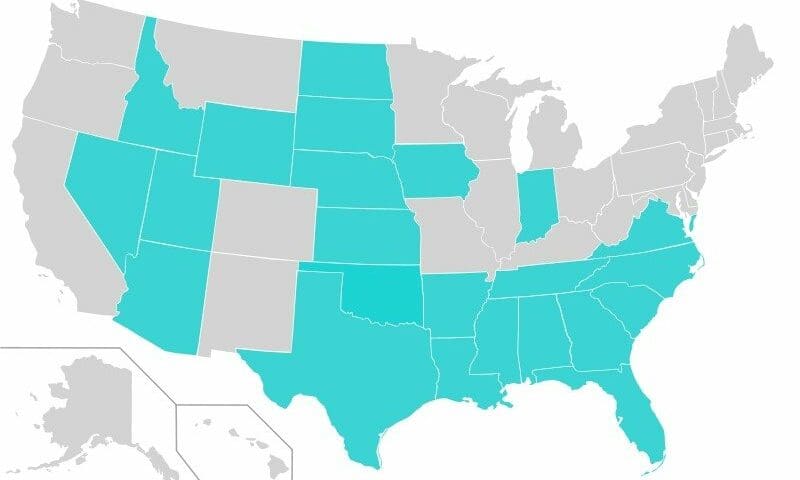

We’re currently riding a serious wave of attacks on labor unions from politicians. (Generally, but not exclusively, this has come from the GOP.) We all know about the assaults on public employee unions that started last year in Wisconsin, and have spread across the country, with proposed or enacted legislation in states such as Michigan, Ohio (subsequently repealed by voters), Indiana, and most egregiously, Arizona.
And then there’s the resurgence of so-called Right to Work legislation, which was just signed into law in Indiana, which became the first state to go RTW since Oklahoma in 2001. (That makes 23 right to work states overall.) Similar legislation is pending elsewhere, including Ohio, Minnesota, Michigan, and New Hampshire. Even states that are already right to work, like South Carolina, just want to get a little right to workier.
With Romney needing to establish more conservative cred,


On and off for two years – between 1988 and 1993 – I worked at the law firm of Latham and Watkins, representing some of the most powerful developers and corporations in Los Angeles. I vividly remember going down to the council chambers in City Hall, standing at the rope separating the public from council members and watching my colleagues pull lawmakers over to lay out what needed to be done in support of a development proposal or a big city contract. I would look around the council chambers and – unless there was some rare public controversy that brought a lot of people down to City Hall – I would see only white lawyers and lobbyists dressed in fancy suits who essentially owned the place.
When I left Latham and Watkins and helped to start LAANE in 1993, I resolved to bring the knowledge of developer lobbyists into our work and get thousands of real people from all stripes down to City Hall.
» Read more about: LA’s Redistricting War and the Health of Our Democracy »
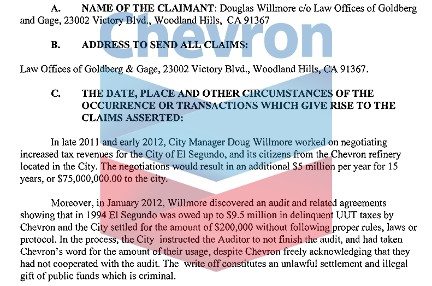

The skirmish of words in El Segundo over its city manager’s proposal to raise local taxes on that city’s largest business, Chevron Oil, has suddenly become a full-fledged legal war, with the official making explosive accusations against both El Segundo’s government and Chevron. The story, which Donald Cohen has been following for Frying Pan News, began with Doug Willmore’s efforts to bring the giant refinery’s taxes in line with the taxes paid by other California oil companies. Willmore was subsequently fired on February 9 by El Segundo’s city council.
In response, the ousted city manager has filed a governmental claim against El Segundo, a forerunner to a lawsuit. In it, Willmore claims that:
» Read more about: El Segundo Inc.: Furor Over Chevron’s Sweetheart Deal »


(Note: This post first appeared on Philanthropy New York’s Smart Assets blog.)
By Beth Herz
Leading the charge on an issue can bring an organization’s work into the spotlight—and sometimes also under a microscope. Madeline Janis, Executive Director of the Los Angeles Alliance for a New Economy (LAANE), learned this when her own organization’s work came under scrutiny for less-than-benevolent reasons. While under her leadership, LAANE learned that an unnamed political ops firm was conducting a careful investigation of all of its records, apparently intending to find fodder for a smear campaign.
On November 29th, Philanthropy New York hosted a funders briefing to discuss the rise of this type of political attack on advocacy work and the roles foundations can play in responding. The briefing’s two panels included Madeline Janis’s story and a case study from Cecile Richards, President of Planned Parenthood.
» Read more about: How to Fund Advocacy in Polarized Political Times »